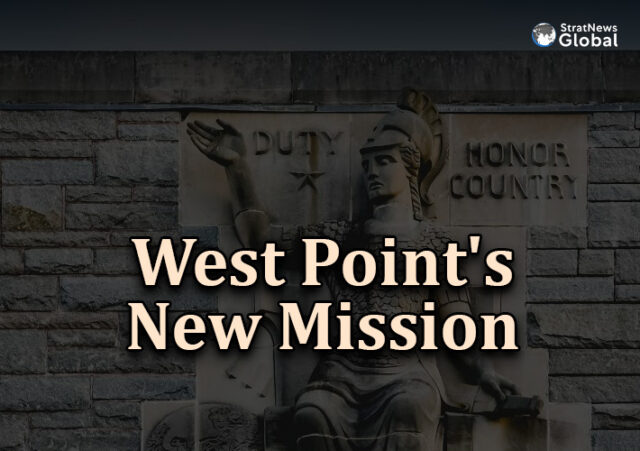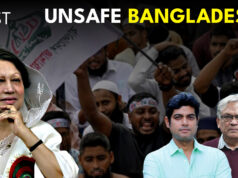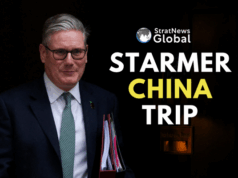The United States Military Academy at West Point has updated its mission statement, sparking questions about a potential shift in focus and accusations that it had gone ‘Woke’. The revised statement replaces the iconic phrase “Duty, Honour, Country” with the broader term “Army Values.”
The Academy’s previous mission statement was: “To educate, train and inspire the Corps of Cadets so that each graduate is a commissioned leader of character committed to the values of Duty, Honor, Country and prepared for a career of professional excellence and service to the nation as an officer in the United States Army.”
The new mission statement, according to the academy, is: “To build, educate, train, and inspire the Corps of Cadets to be commissioned leaders of character committed to the Army Values and ready for a lifetime of professional excellence and service to the Army and Nation.”
West Point Superintendent Lt. Gen. Steve Gilland moved to quell concerns in a message to the academy community. Stressing that “Duty, Honour, Country” remains the institution’s motto and continues to represent its core values, he explained that the change follows an 18-month review involving leadership and stakeholders. The revised statement reflects the academy’s commitment to continuously evaluating methods for developing the best possible military leaders.
General Gilland also pointed out that the academy’s mission statement has evolved throughout its history, and the phrase “Duty, Honour, Country” was only added in 1998.
In a historic address at West Point in 1962, General Douglas MacArthur, a legendary figure in American military history, who after World War II, was named supreme allied commander, overseeing the surrender of Japan in Tokyo Harbour, implored cadets to live by the motto “Duty, Honour, Country.”
May 12, 1962 – General Douglas MacArthur delivers his famous Duty, Honor, Country speech as he accepts West Point’s Thayer Award. pic.twitter.com/Vt7QAIRssQ
— MacArthur Memorial (@MacArthur1880) May 12, 2022
“The saddest part is that we shouldn’t be surprised. At West Point, a cadet can get a degree in Diversity and Inclusion studies. The admissions office builds the Corps of Cadets based on ‘class composition goals’ that are, without question, race and sex-based quotas,” Will Thibeau, an Army Ranger veteran and director of The American Military Project at The Claremont Institute, told Breitbart News in a statement.
“On the surface, this change is a benign semantic tweak from leadership. In reality, this is a rhetorical revolution in West Point’s culture. ‘Duty, Honor, Country’ are foundational commitments, instilled by General McArthur, that transcend time and culture. The Army Values now in the mission statement have undergone constant revisions since 1986, only formally codified in 2012. ‘Values’ are subjective cultural preferences that, for the Army, while important concepts, were the product of corporate consulting and endless bureaucratic revision,” he added.
Also See:
In a career spanning three decades and counting, Ramananda (Ram to his friends) has been the foreign editor of The Telegraph, Outlook Magazine and the New Indian Express. He helped set up rediff.com’s editorial operations in San Jose and New York, helmed sify.com, and was the founder editor of India.com.
His work has featured in national and international publications like the Al Jazeera Centre for Studies, Global Times and Ashahi Shimbun. But his one constant over all these years, he says, has been the attempt to understand rising India’s place in the world.
He can rustle up a mean salad, his oil-less pepper chicken is to die for, and all it takes is some beer and rhythm and blues to rock his soul.
Talk to him about foreign and strategic affairs, media, South Asia, China, and of course India.





